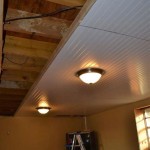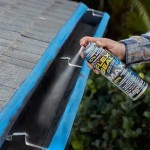Should I Insulate My Basement Floor?
A finished basement can be a valuable addition to any home, providing extra living space, a home office, or a playroom for children. However, an unfinished basement can be cold, damp, and uncomfortable, especially during the winter months. This is due in part to the lack of insulation, which can lead to heat loss, cold floors, and even mold growth. Insulating your basement floor can help improve comfort, lower energy bills, and protect your home from moisture damage. But, it's not always necessary and can be an expensive undertaking. So, how do you decide if insulating your basement floor is right for you?
Key Considerations for Basement Floor Insulation
Several factors should be considered before deciding whether to insulate your basement floor. These factors include:
1. Climate and Location
The climate you live in plays a significant role in determining the need for basement floor insulation. If you reside in an area with cold winters and experience freezing temperatures, basement floor insulation is highly recommended to minimize heat loss and prevent cold floors. Conversely, if you live in a warm climate with mild winters, you may not need insulation. The location of your basement, especially if it's below grade, also influences the need for insulation. Basements below grade are more susceptible to cold temperatures and dampness, making insulation a prudent choice.
2. Use of the Basement
The intended use of your basement is another crucial factor to consider. If you plan to finish the basement and use it as living space, insulation is highly recommended for comfort and energy efficiency. However, if you plan to use the basement for storage or workshop space, insulation may not be necessary. The level of comfort and energy efficiency you desire will ultimately determine the need for insulation.
3. Existing Insulation
Before making a decision about insulating your basement floor, assess the existing insulation in your basement. If your basement has no insulation or insufficient insulation, insulating the floor can significantly improve comfort and energy efficiency. However, if you have existing insulation in good condition, it may not be necessary to add more, unless you are experiencing significant heat loss or cold floors. Consider the type of existing insulation and whether it's effective for your climate and desired comfort level.
Benefits of Insulating Your Basement Floor
Insulating your basement floor offers several advantages, including:
1. Improved Comfort
Insulating your basement floor can significantly reduce the amount of heat lost through the floor and keep your basement warmer and more comfortable, especially during the winter months. Cold floors can create a feeling of discomfort and make it unpleasant to spend time in the basement. Insulation prevents this by creating a barrier against the cold ground.
2. Energy Savings
Insulating your basement floor can also help lower your energy bills by reducing the amount of heat you need to use to keep your home warm. By minimizing heat loss through the floor, you can save money on your heating costs, especially if you use your basement as living space.
3. Moisture Control
Insulation can help control moisture levels in your basement. By creating a barrier between the cold ground and the living space, it prevents condensation from forming on the floor and walls, reducing the risk of mold growth and promoting a healthier environment.
4. Increased Home Value
Insulating your basement floor can also increase the value of your home. A finished basement with insulation is often more desirable to potential buyers and can command a higher price than a basement without insulation. While the value increase may not fully offset the cost of insulation, it can be a worthwhile investment for homeowners considering selling their home.
Costs and Considerations
Insulating your basement floor involves costs associated with materials and labor. The cost of insulation materials varies depending on the type of insulation chosen. Some materials are more expensive than others, but might provide better insulation and longer-lasting results. Labor costs also vary depending on the size of your basement and the complexity of the installation. It's worthwhile to get quotes from multiple contractors to compare prices and find the best value for your needs.
Before you decide to insulate your basement floor, consider the following factors:
1. Access and Accessibility
Consider access and accessibility to your basement floor. If your basement is finished, you'll need to remove flooring and other fixtures to install insulation. This can be a time-consuming and disruptive process. You'll also need to account for the difficulty of installing insulation in tight spaces, as well as potential damage to existing flooring.
2. Ventilation
Adequate ventilation is crucial for a healthy basement. Ensure proper ventilation in your basement before and after installing insulation to prevent moisture buildup and mold growth. This may involve installing or upgrading existing ventilation systems.
3. Moisture Control
If your basement is prone to moisture problems, address these issues before installing insulation. This may involve waterproofing the basement walls and foundation, installing a sump pump, or improving drainage around your home.
Insulating your basement floor can be a worthwhile investment, offering numerous benefits, including improved comfort, energy savings, moisture control, and increased home value. However, it's essential to consider the factors discussed above, including the climate, intended use, existing insulation, and costs, before making a decision. Carefully weigh the potential benefits and challenges of insulating your basement floor to determine if it's the right choice for you.

Insulating And Finishing An Old Basement Floor Fine Homebuilding

What S The Best Way To Insulate A Basement Slab Greenbuildingadvisor

Should I Insulate My Basement Constellation

Installing Rigid Foam Above A Concrete Slab Greenbuildingadvisor
How Would You Insulate Above A Concrete Floor Located Non Heated Garage When There Is 3 To Bring Up Grade Of The Adjacent Room Close In Porch

How To Insulate Your Existing Concrete Slab With Halo S Interra In 5 Easy Steps Buildwithhalo Com

Cold Floors Over Basements How To Create A Warmer Floor Your Basement

What Is Basement Ceiling Insulation And It Worth

Basement Concrete Floor How To Insulate It

Basement Subfloor Insulation Home Ca







